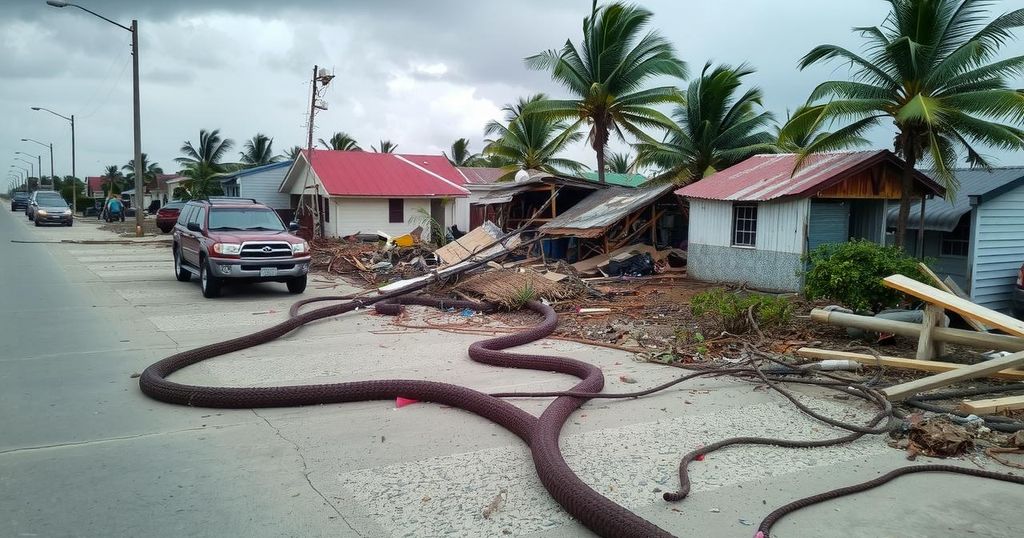Cyclone Chido has devastated Mozambique and Malawi, leaving 60 dead and 230,000 affected, according to UN sources. The cyclone struck Mayotte before moving on to Madagascar and ultimately causing severe destruction in Mozambique, particularly in the provinces of Cabo Delgado, Nyassa, and Nampula, where the majority of victims are found. Malawi also faced significant damage but to a lesser extent, with 13 fatalities reported. Cuban officials have expressed condolences to the affected families and communities.
The recent devastation caused by Cyclone Chido in Mozambique and Malawi has hindered communities and sparked international condolences, notably from Cuba. The head of Cuban diplomacy extended heartfelt sympathies on his X profile, particularly for the victims’ families affected in these regions. According to the United Nations Office for Humanitarian Affairs, the cyclone has tragically claimed approximately 60 lives and affected around 230,000 individuals in total.
Cyclone Chido wrought havoc as it traversed multiple terrains. After impacting Mayotte, a French overseas territory, where it claimed numerous lives and caused severe destruction to infrastructure including homes, crops, and healthcare facilities, the cyclone continued its perilous path through Madagascar before devastating Mozambique and Malawi.
Mozambique experienced the greatest toll, with 45 reported fatalities and over 184,000 individuals injured across the northern provinces of Cabo Delgado, Nyassa, and Nampula. In Malawi, while the impact was somewhat less catastrophic, 13 lives were lost and over 45,000 people found themselves homeless following the cyclone’s path of destruction.
The regions are now left to cope with the aftermath, as emergency responses are coordinated to provide relief and rehabilitation to the worst-hit communities. International support remains crucial for those affected as they embark on the journey to recover and rebuild their lives.
Cyclone Chido struck Mozambique and Malawi in a recent natural disaster, illustrating the severe impacts of climate-induced events in Southern Africa. Historically, cyclones pose significant threats to this region, exacerbating existing vulnerabilities among communities frequently faced with poverty, infrastructure deficits, and public health challenges. With a notable death toll and rising numbers of injured and displaced individuals, the cyclone highlights the urgent need for preparedness and response strategies to mitigate the consequences of such weather phenomena. Understanding the context of this cyclone’s impact is essential to grasping regional humanitarian needs and fostering international solidarity in relief efforts.
The aftermath of Cyclone Chido in Mozambique and Malawi underscores the dire consequences of natural disasters on vulnerable populations. With Cuba extending condolences and the UN reporting substantial casualties and injuries, it is evident that immediate humanitarian response is crucial. The cyclone serves as a reminder of the ongoing threats posed by climate change and the need for collaborative efforts to support affected communities in recovering and rebuilding their lives.
Original Source: www.plenglish.com






